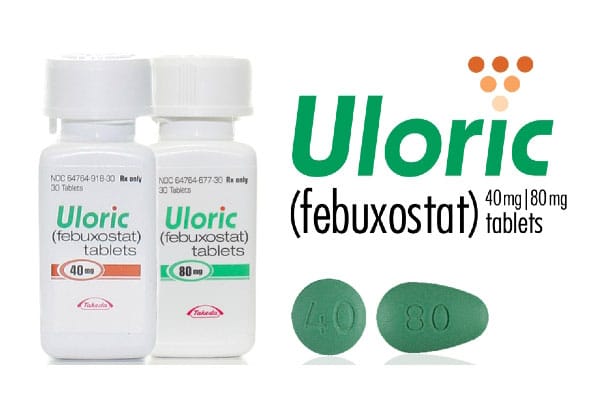Uloric, a popularly prescribed medication known as Febuxostat, is a daily treatment aimed at preventing gout attacks. By inhibiting xanthine oxidase—an enzyme responsible for the production of uric acid—Uloric helps in reducing uric acid levels in the body, thereby helping to prevent chronic gout and kidney stones.
Before beginning Uloric, it’s crucial to inform your healthcare provider about any pre-existing medical conditions, which include:
- Kidney or liver issues
- History of cardiovascular disease
- Current or planned pregnancy
- Breastfeeding or plans to breastfeed
Here are the most frequently observed side effects of Uloric:
- Joint pain
- Nausea
- Skin rash
- Dizziness
Some more severe side effects include:
- Heart attack or other cardiovascular events
- Weakness
- Numbness in limbs
- Shortness of breath
Dosage Information for Uloric
Uloric is generally prescribed in doses of 40 mg or 80 mg taken once daily. The standard starting dosage is 40 mg per day. However, if the serum uric acid (sUA) level remains above 6 mg/dL after two weeks, the dosage can be increased to 80 mg once daily.
There’s no need for dosage adjustment in patients with mild to severe hepatic impairment.
Uses of Uloric
Uloric, with the generic name Febuxostat, is a prescription medication that works by inhibiting xanthine oxidase (XO) to lower uric acid levels in the blood for adults suffering from gout. Uric acid is formed from purines, which are substances found in the body and in certain foods and beverages.
Alternative Medications
Some alternatives to Uloric include:
- Allopurinol – This medication treats high uric acid levels caused by gout, kidney stones, and cancer treatments. It is not recommended for treating asymptomatic high uric acid levels. Discontinue use immediately if a rash occurs and seek urgent medical care.
- Zyloprim – Effective in treating gout and kidney stones and useful for preventing uric acid increases in patients undergoing chemotherapy for cancer.
